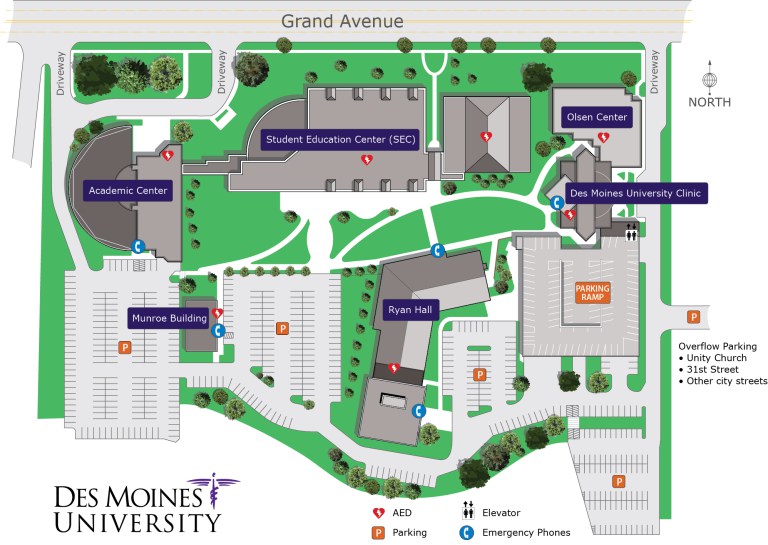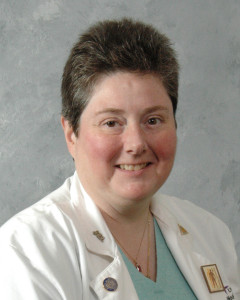OMM Introduction and Review Course
| Registration |
|---|
You must login or create an account before enrolling in this educational activity.Once you're logged in, please click on the ENTER button to your right. Your attendance will then be confirmed. |
Target Audience
Des Moines University MD and DO preceptors.
Purpose
Taught by DMU faculty and clinicians, this free CME activity will introduce physicians who serve as DMU preceptors to osteopathic manual medicine (OMM) diagnostic and treatment procedures of the cervical and lumbar regions. Our hope is preceptors will become comfortable with allowing students to practice OMM during patient care and/or refresh the physicians’ skill with OMM. DMU is committed to providing a way for interested physicians to review OMM procedures with the ability to practice them in a safe laboratory environment.
What is OMM?
Nearly every day, medical science unveils new discoveries from brain scans to anti-cancer drugs. In the midst of these wonders, it's easy to forget that sometimes what patients really need is a healing touch. Osteopathic physicians haven't forgotten. Osteopathic manipulative treatment, or OMT, is hands-on care. It involves using the hands to diagnose, treat, and prevent illness or injury. Using OMT, your osteopathic physician will move your muscles and joints using techniques including stretching, gentle pressure and resistance.
When appropriate, OMT can complement, and even replace, drugs or surgery. In this way, OMT brings an important dimension to standard medical care. OMT can help people of all ages and backgrounds. The treatment can be used to ease pain, promote healing and increase overall mobility. OMT is often used to treat muscle pain. But it can also help patients with a number of other health problems such as:
- asthma
- sinus disorders
- carpal tunnel syndrome
- migraines
- menstrual pain
Agenda
Attend the pre-course, OMM review, or both!
| 7:30 am | Registration and Breakfast |
| 8 am | Introduction to OMM, OMM Terminology, Safety of OMM Jose Figueroa, DO
|
| 9 am | OMM Lab: Palpation, Major Areas, and Soft Tissue Techniques |
| 10:30 am | Introduction to OMM Treatment Styles Adrian Woolley, DO
|
| 11:30 am | Lunch |
| 12:30 pm | OMM Curriculum: Integrating DMU Students' OMM Skills Into Preceptors Practice Drew Lewis, DO, FAAO, FAOCPMR, FAAPMR
|
| 1 pm | Safety of OMM |
| 1:30 pm | Cervical Spine, Documentation and Coding in OMM, and Laboratory Session Jose Figueroa, DO
|
| 3:30 pm | Lumbar Spine: Evaluation, Treatment, and Laboratory Session Drew Lewis, DO, FAAO, FAOCPMR, FAAPMR Overall goal: Integrate existing knowledge with this lecture to be able to formulate decisions regarding management of spinal pain.
|
| 5 pm | Adjourn |

Des Moines University is located on a 22-acre campus in the heart of Des Moines, Iowa. Just west of downtown on Grand Avenue, the University is located in one of Des Moines’ most prestigious neighborhoods. The campus is in a historic neighborhood filled with tree-lined streets and gracious older homes and businesses. Its central location makes it easy to access the rest of the city and outlying communities. The campus is close to the Des Moines International Airport, located on the bus line and just blocks from local shopping and downtown Des Moines.

Travel
Hotel Accommodations
There are numerous hotels available in the Des Moines area. Below are a few options located downtown (close to campus), near the airport and west of Des Moines. Some hotels offer shuttle service to DMU, but you must inquire with the hotel directly. Some hotels may offer a discount (based on availability). Mention DMU to your hotel to see if a discount may be available.
Des Moines Marriott – Downtown
700 Grand Avenue
Des Moines, IA 50309
515-245-5500
- May offer discounted rates
- Airport shuttle service
- Restaurant and lounge
- Health club and indoor pool
Hyatt Place Des Moines
418 6th Avenue
Des Moines, IA 50309
515-282-5555 or 888-591-1234
- Airport shuttle service
- Complimentary shuttle service to Des Moines University
- Complimentary Hot American & Continental Breakfast
- Fitness Center & Indoor Pool
- DMU Discounted Rate (mention Des Moines University Corporate Rate)
Renaissance Savery Hotel – Downtown
401 Locust Street
Des Moines, IA 50309
800-514-4706
- Airport shuttle service
- Restaurant and lounge
- DMU discount on standard rooms (based on availability)
Jose Figueroa, DO
Assistant Professor and Clinician, Doctor of Osteopathic Medicine Program, Des Moines University

Drew Lewis, DO, FAAO, FAOCPMR, FAAPMR
Associate Professor and Clinician, Doctor of Osteopathic Medicine Program, Des Moines University

Adrian Woolley, DO
Assistant Professor and Clinician, Doctor of Osteopathic Medicine Program, Des Moines University
Relevant to the content of this CME activity, the speakers indicated they have no financial relationships with commercial interest companies to disclose.
Continuing Education Credit
- DO: Des Moines University (DMU) is accredited by the American Osteopathic Association (AOA) to provide osteopathic continuing medical education for physicians. DMU designates this program for a maximum of 8.0 AOA Category 1-A credits and will report CME and specialty credits commensurate with the extent of the physician’s participation in this activity.
- MD: This activity has been planned and implemented in accordance with the accreditation requirements and policies of the Iowa Medical Society (IMS).
 Des Moines University (DMU) is accredited by the IMS to provide continuing medical education for physicians. DMU designates this live activity for 8.0 AMA PRA Category 1 Credit(s)™. Physicians should claim only the credit commensurate with the extent of their participation in the activity.
Des Moines University (DMU) is accredited by the IMS to provide continuing medical education for physicians. DMU designates this live activity for 8.0 AMA PRA Category 1 Credit(s)™. Physicians should claim only the credit commensurate with the extent of their participation in the activity. - Other healthcare providers: This live activity is designated for 8.0 AMA PRA Category 1 Credit(s)™.
Educational Grants
No commercial interest company provided financial support for this continuing education activity.
DISCLAIMER
Everyone in a position to control the content of this educational activity will disclose to the CME provider and to attendees all relevant financial relationships with any commercial interest. They will also disclose if any pharmaceuticals or medical procedures and devices discussed are investigational or unapproved for use by the U.S. Food and Drug Administration (FDA). Determination of educational content and the selection of speakers is the responsibility of the activity director. Firms providing financial support did not have input in these areas. The information provided at this CME activity is for continuing education purposes only and is not meant to substitute for the independent medical judgment of a healthcare provider relative to diagnostic and treatment options of a specific patient’s medical condition.
Available Credit
- 8.00 AMA PRA Category 1 Credits™
- 8.00 AOA Category 1A
- 8.00 CE Contact Hour(s)

 Facebook
Facebook X
X LinkedIn
LinkedIn Forward
Forward
